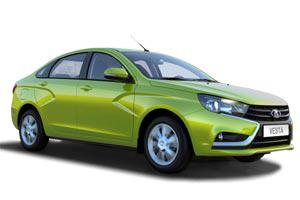Technical specifications
| Clear list | Volvo C30 | Hyundai i30 (2017-2020) |
| Totals | Volvo C30 2.0 × | Hyundai i30 (2017-2020) 1.4 T-GDI × |
| Mark | Volvo | Hyundai |
| Model | C30 2.0 | i30 (2017-2020) 1.4 T-GDI |
| Year | 2010 | 2017-2020 |
| Number of doors/seats | 3/5 | 5/5 |
| Body type | Hatch | Hatch |
| Unladen Weight | 1380 | 1352 (1388) |
| Gross Weight Limit | 1770 | 1820 (1850) |
| Top Speed, km/h | 210 | 210 (205) |
| Acceleration 0-100 kph | 9.7 | 8.9 (9.2) |
| Minimum turning radius, m | - | 5.3 |
| Cargo Volume, min/max, L | 233 | 395/1301 |
| Dimensions specifications, mm | Volvo C30 2.0 × | Hyundai i30 (2017-2020) 1.4 T-GDI × |
| Length | 4266 | 4340 |
| Width | 1782 | 1795 |
| Height | 1447 | 1455 |
| Wheelbase | 2640 | 2650 |
| Front/rear Track | 1535/1531 | - |
| Ground clearance | - | 140 |
| Engine specifications | Volvo C30 2.0 × | Hyundai i30 (2017-2020) 1.4 T-GDI × |
| Type | petrol Injection | Gasoline Direct Injection, turbocharging |
| Displacement, cm3 | 1999 | 1353 |
| Compression ratio | 10.8 | 10 |
| Number and arrangement of cylinders | 4 cylinders, in-line | 4 cylinders, in-line |
| The diameter of the cylinder x stroke, mm | 87.5x83.1 | 71.6x84 |
| Number of valves | 16 | 16 |
| Power, hp/rpm | 145/6000 | 140/6000 |
| Max torque, Nm/RPM | 185/4500 | 242/1500 |
| Transmission specifications | Volvo C30 2.0 × | Hyundai i30 (2017-2020) 1.4 T-GDI × |
| Gearbox | 6-speed manual | 6-speed manual / 7-speed automatic DCT |
| Drive Type | Front wheel drive | Front wheel drive |
| Suspension specifications | Volvo C30 2.0 × | Hyundai i30 (2017-2020) 1.4 T-GDI × |
| Front | MacPherson strut | MacPherson strut |
| Rear | multi-link suspensions | multi-link suspensions |
| Tire Size | 195/65/15, 205/55/16, 205/50/17 | 205/55 R16, 225/45 R17 |
| Disk | 5x108 ET46 d63.3
| 5x114.3 ET47 d67.1
|
| Brakes specifications | Volvo C30 2.0 × | Hyundai i30 (2017-2020) 1.4 T-GDI × |
| Front | Ventilated discs | Ventilated discs |
| Rear | Ventilated discs | Discs |
| Fuel consumption specifications, L/100 km | Volvo C30 2.0 × | Hyundai i30 (2017-2020) 1.4 T-GDI × |
| City | 10.6 | 6.1 (6.5) |
| Highway | 6.3 | 4.5 (5) |
| Combined | 8.1 | 5 (5.5) |
| Fuel | 95 | 95 |
| Tank, L | 55 | 50 |
| Clear list | Volvo C30 | Hyundai i30 (2017-2020) |














